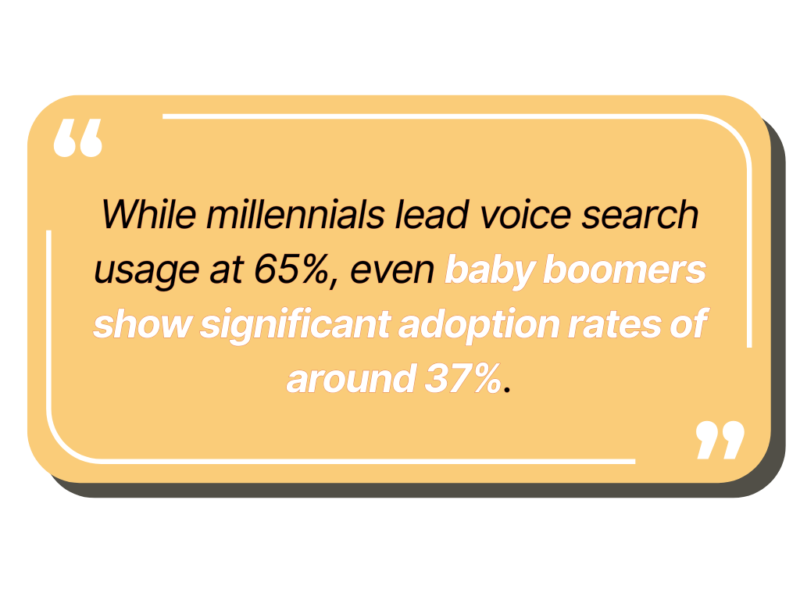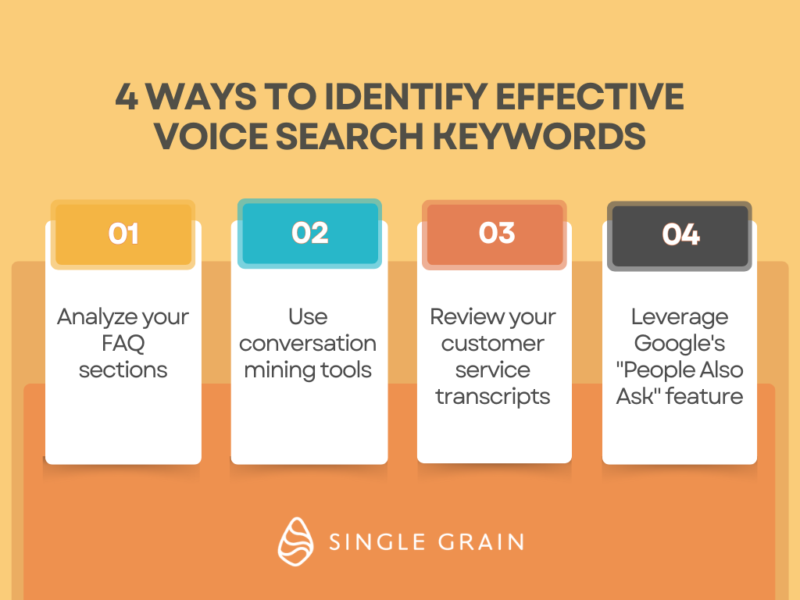How Optimizing for Voice is Transforming SEO Strategies in 2025
Description
Key Highlights
- Voice search is projected to account for over 50% of all searches by 2025, fundamentally changing how users discover content online
- Voice queries are typically longer, more conversational, and often phrased as questions, requiring a shift in keyword strategy
- Local businesses see the greatest impact from voice search optimization, with 58% of consumers using voice to find local information
- Mobile optimization is no longer optional, as the majority of voice searches occur on smartphones and other mobile devices
- Structured data and schema markup have become essential for helping voice assistants understand and feature your content
- Voice commerce is projected to reach $80 billion annually by 2025, creating new revenue opportunities for businesses that optimize effectively
TABLE OF CONTENTS:
- The Fundamental Shift in Search Behavior
- Conversational Keywords: The New SEO Currency
- Local SEO: The Voice Search Amplifier
- Technical Foundations for Voice Search Success
- Content Strategies for Voice Search Dominance
- Voice Commerce: The Next Frontier
- Measuring Voice Search Success
- Future of Voice Search and SEO
- Raise Your Voice Search Strategy with Karrot.ai
The digital landscape is experiencing a profound transformation as voice search technology continues its meteoric rise. What began as a novelty feature has evolved into a fundamental shift in how people interact with search engines and discover information online. In 2025, voice search isn’t just an alternative to traditional text-based searches—it’s becoming the globally preferred method for millions of users.
According to recent projections, voice search is expected to account for over 50% of all searches by the end of 2025. This dramatic shift is driven by the increasing sophistication of voice assistants like Google Assistant, Apple’s Siri, and Amazon’s Alexa, along with the growing ubiquity of smart speakers, smartphones, and other voice-enabled devices.
What does this mean for businesses and marketers? This evolution represents both a challenge and an opportunity. Those who adapt their SEO strategies to accommodate voice search will gain a significant competitive advantage, while those who cling to outdated approaches risk becoming increasingly invisible to a growing segment of their potential audience.
In this comprehensive guide, we’ll explore how optimizing for voice is transforming SEO strategies in 2025 and provide actionable insights to help you navigate this changing landscape.
The Fundamental Shift in Search Behavior
The rise of voice search has catalyzed a fundamental shift in how people interact with search engines. Unlike traditional text-based searches, which often consist of abbreviated keyword phrases (“best coffee shop NYC”), voice searches tend to be longer, more conversational, and frequently structured as complete questions (“What’s the best coffee shop in downtown Manhattan?”).
This shift is reflected in the data: the average voice search query contains 29 words, compared to just 3-4 words for the average text search. This dramatic difference in query length and structure necessitates a complete rethinking of SEO strategies that were built around short, fragmented keyword phrases.

Moreover, voice search has changed user expectations regarding search results. When people use voice search, they typically expect immediate, concise answers rather than a list of links to explore. This preference for direct answers has contributed to the rise of zero-click searches, where users get the information they need directly from the search results page without clicking through to a website.
The impact of this behavioral shift varies across demographics, but adoption is strong across all age groups. While millennials lead voice search usage at 65%, even baby boomers show significant adoption rates of around 37%. This broad demographic appeal underscores the importance of voice search optimization as a universal SEO strategy rather than one targeted at specific audience segments.

Conversational Keywords: The New SEO Currency
The conversational nature of voice search has transformed keyword research and strategy. Traditional keyword approaches focused on short, often grammatically incorrect phrases must now expand to include natural language patterns that mirror how people actually speak.
Long-tail, conversational keywords have become the new currency of SEO in the voice search era. These extended phrases typically have lower search volumes individually but collectively represent a significant portion of search traffic. More importantly, they often indicate higher intent and can drive more qualified traffic to your site.
Question-based queries have particular significance in voice search optimization. Keywords that begin with who, what, when, where, why, and how should be central to your voice search strategy. Research shows that “how” and “what” questions dominate voice searches, accounting for nearly 50% of all voice queries.

To identify effective voice search keywords, consider these approaches:
- Analyze your FAQ sections: What questions are your customers already asking? These provide natural starting points for voice search optimization.
- Use conversation mining tools: Tools like AnswerThePublic and BuzzSumo’s Question Analyzer can help identify question-based queries related to your industry.
- Review your customer service transcripts: Direct conversations with customers often reveal the natural language they use when asking about your products or services.
- Leverage Google’s “People Also Ask” feature: This provides insight into related questions users are asking about your topic.
When implementing voice search keywords, it’s important to maintain a natural, conversational tone. Awkwardly forcing question phrases into your content can be counterproductive. Instead, create content that naturally addresses these questions in a conversational manner.
A balanced approach that accommodates both traditional and voice search keywords is ideal. While voice search is growing rapidly, text-based searches remain significant and should not be neglected in your overall SEO strategy.
Local SEO: The Voice Search Amplifier
If there’s one area where voice search has had an outsized impact, it’s local search. Studies show that local searches dominate voice queries, with “near me” searches growing exponentially year over year. In fact, 58% of consumers report using voice sea





